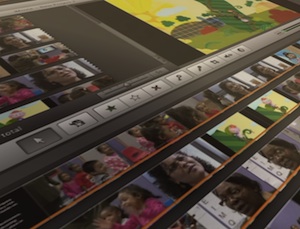Coverage of the FETC 2013 Conference
Here you'll find coverage of the FETC conference. The 2013 National Conference is being held Jan. 28-31 in Orlando, FL. We're providing news from the show floor, session highlights, and lead-up interviews with ed tech leaders who will be delivering keynote addresses and moderating sessions at the event. You'll also find coverage of past FETC events deeper in these archives. For show schedule, registration information, and other details about the conference itself, visit FETC.org.
Texas Instruments has expanded its TI-Nspire line of interactive classroom tools. At the FETC 2010 conference in Florida, the company introduced TI-Nspire Navigator, a wireless student response system especially designed for math and science educators to facilitate and measure classroom instruction and collaboration.
At the FETC 2010 conference in Orlando, FL educational non-profit researcher and publisher MIND Research Institute announced its newest innovations in elementary mathematics instruction.
Rutland City Public Schools (RCPS) of Rutland, VT, is migrating its autism tools and resources online.
In a pilot program announced at FETC 2010 in Orlando, 12 schools in the Indianapolis Public Schools (IPS) system will replace traditional textbooks with digital content from Discovery Education. The program also includes curriculum alignment services, professional development, and hardware.
InformationNow, a Web-based student information system from K-12 technology developer STI, is adding a new suite of features called "Go Green."

As technology professionals for the St. Johns County School District in Florida, David Futch and Charles Moseley understand the value--and scarcity--of instructional dollars. During their session at FETC 2010 last week in Orlando, FL, the pair conceded, "as the belt gets tighter, the need for creative solutions to instructional problems becomes increasingly critical." Enter Web 2.0.
AIM Education has introduced Learn360 3.0, a major update to the company's digital media repository and sharing service. The latest release, which was announced at last week's FETC 2010 conference in Florida, gets improved performance and, according to the company, enhanced media sharing capabilities.
Which technology tools can help improve teaching and learning? Which can boost productivity? Which are just plain useful for keeping organized? At the FETC 2010 conference last week, education technology veterans shared their lists of apps intended to make life in and out of the classroom faster, easier, and, well, better.

Over the last decade, advances in technology have made dreams of ubiquitous access to digital media a reality, both on the Web and off. From inexpensive cameras to iPods to cell phones to integrated Webcams, capturing, editing, and sharing digital audio and video has become push-button easy. And that, according to University of Central Florida (UCF) professors Robert Kenny and Glenda Gunter, is good news for K-12 educators.
According to John Kuglin, cloud computing could serve as the strategic component that has been missing in K-12 technology efforts--a way to deliver more and better services. The technology may answer the question that educators tend to ask after computers are purchased and 1:1 initiatives implemented: "Now what?"